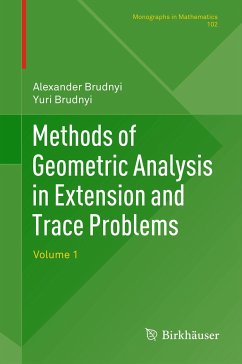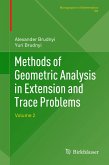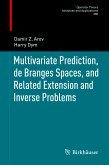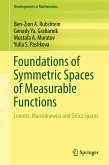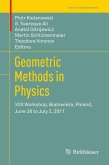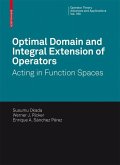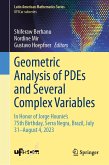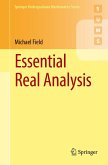This is the first of a two-volume work presenting a comprehensive exposition of extension results for maps between different geometric objects and of extension-trace results for smooth functions on subsets with no a priori differential structure (Whitney problems). The account covers the development of the area from the initial classical works of the first half of the 20th century to the flourishing period of the last decade. Seemingly very specific, these problems have been from the very beginning a powerful source of ideas, concepts and methods that essentially influenced and in some cases even transformed considerable areas of analysis. Aside from the material linked by the aforementioned problems the work is also unified by the geometric analysis approach used in the proofs of basic results. This requires a variety of geometric tools from convex and combinatorial geometry to geometry of metric space theory to Riemannian and Coarse geometry and more. The necessary facts are presented mostly with detailed proofs to make the book accessible to a wide audience.
Dieser Download kann aus rechtlichen Gründen nur mit Rechnungsadresse in A, B, BG, CY, CZ, D, DK, EW, E, FIN, F, GR, HR, H, IRL, I, LT, L, LR, M, NL, PL, P, R, S, SLO, SK ausgeliefert werden.
"Book under review is enormous in scope and contains most of the old and current results on extension problems. Many of the theorems appear here for the first time in book form. The book is self-contained, and the detailed arguments make it accessible to a wide audience, especially graduate students interested in getting into the subject. ... It will become a standard reference in the subject, and it deserves a spot in the library." (Garving K. Luli, Bulletin of the American Mathematical Society, Vol. 53 (1), January, 2016)
"The book is a unique (and therefore best) systematic presentation of the parts of analysis linked with the extension and trace problems. It is also a rich source of references and historical information on the topics under consideration. Undoubtedly, the book will influence significantly the research on the subject. The book is addressed at researchers, but it is also useful for lecturers as a source of supplementary material for standard courses of real and functional analysis." (Victor Milman, Zentralblatt MATH, Vol. 1253, 2013)
"The two-volume monograph is divided into ten chapters, with five chapters in each volume. ... the book successfully conveys the authors' coherent vision for the subject, with the emphasis on linear extension operators, finiteness properties, and the treatment of extension via selection. It is certain to become a standard reference in the field." (Leonid V. Kovalev, Mathematical Reviews, Issue 2012 j)
"The book is a unique (and therefore best) systematic presentation of the parts of analysis linked with the extension and trace problems. It is also a rich source of references and historical information on the topics under consideration. Undoubtedly, the book will influence significantly the research on the subject. The book is addressed at researchers, but it is also useful for lecturers as a source of supplementary material for standard courses of real and functional analysis." (Victor Milman, Zentralblatt MATH, Vol. 1253, 2013)
"The two-volume monograph is divided into ten chapters, with five chapters in each volume. ... the book successfully conveys the authors' coherent vision for the subject, with the emphasis on linear extension operators, finiteness properties, and the treatment of extension via selection. It is certain to become a standard reference in the field." (Leonid V. Kovalev, Mathematical Reviews, Issue 2012 j)
From the reviews: "The two-volume monograph is divided into ten chapters, with five chapters in each volume. ... Volume II reports on the recent progress in the area of the extension and trace problems. ... the book successfully conveys the authors' coherent vision for the subject, with the emphasis on linear extension operators, finiteness properties, and the treatment of extension via selection. It is certain to become a standard reference in the field." (Leonid V. Kovalev, Mathematical Reviews, Issue 2012 j)

